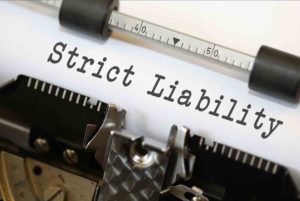Rylands vs Fletcher (1868) LR 3 HL 330 was a decision by the House of Lords which established a new area of English tort law. In this case the courts established a new tort, as an extension of nuisance, whereby a defendant is liable if they bring onto land a thing likely to do mischief if it escapes.
FACTS OF THE CASE:
The defendant, Rylands, had a reservoir constructed on his land by independent contractors. The contractors were independently chosen, and apparently seemed competent to carry out the construction. When the construction of the reservoir was in process, the contractors came across some old coal shafts and passages that were beneath the defendant’s land. These passages were connected to a mine on another person’s land, i.e. the plaintiff, Thomas Fletcher, but the contractors discovered that they were filled with loose soil and earth. The contractors did not pay attention to them and continued to build the reservoir over the passages. When the reservoir was complete, it was filled with water.
Shortly, after the water was filled in the reservoir, water caused the reservoir to burst and entered the passages beneath the reservoir. Consequently, the water reached the plaintiff’s land and burst through the mine on the land, the Red House Colliery, thus flooding them. Fletcher tried pumping the water out, but his pump also burst, causing the mine to flood again. Ultimately, a mines inspector was called, and the coal shafts beneath the defendant’s land were discovered. Fletcher brought an action against Rylands as well as the landowner.
JUDGEMENT:
The appeal was dismissed and the House of Lords stood in favour of Fletcher, and Lord Cairns, speaking for the house, stated that they agreed with the rule stated by Blackburn J, but added a limit to the liability which said that the land from which the mischievous thing escapes must be in use for a non-natural, inappropriate or unusual purpose. He observed that had the defendants, being owners and occupiers of the land, been using the land for natural purposes, for which in the ordinary course of enjoyment of the land, there had been accumulation of water in natural quantities, and had the water escaped the land of the defendants under ordinary course of natural laws, then the plaintiff was not entitled to complain, and it would have fallen upon the plaintiff to guard his land from flooding. But here, the defendants were amassing unnaturally large quantities of water, which could not be termed as natural, and as an outcome of imperfection in their action, the water in the reservoir caused the plaintiff’s land to be flooded and his mine destroyed. The actions of the defendants resulted in injury to the plaintiff, making the defendants liable to compensate the plaintiff.
Exceptions to the Rule of Strict Liability:
- If the escape was due to the plaintiff’s own actions and the defendant had no role to play in it.
- If the escape of the thing was due to an act of God.
- If the escape was due to an irrational or supernatural force, which is similar to an act of God but it takes into account all such events which could not have been apprehended beforehand, or events happening in rare circumstances.
- If the escape was due to an act of a stranger to the circumstances upon whom the defendant had no control and nor the defendant could have anticipated or controlled the situation created by the stranger
“PRIME LEGAL is a full-service law firm that has won a National Award and has more than 20 years of experience in an array of sectors and practice areas. Prime legal fall into a category of best law firm, best lawyer, best family lawyer, best divorce lawyer, best divorce law firm, best criminal lawyer, best criminal law firm, best consumer lawyer, best civil lawyer.”
JUDGEMENT REVIEWED BY ANAGHA K BHARADWAJ


